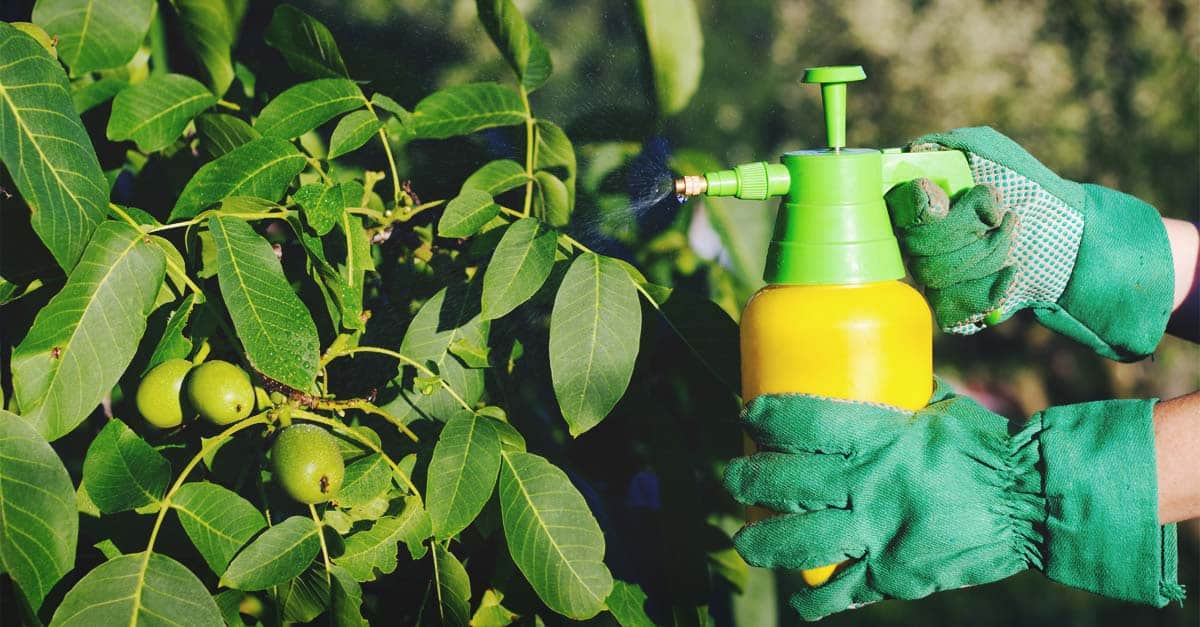When managing garden pests, natural pest control methods should always be your first choice. Organic insecticides, however, can be an effective last resort. It’s crucial to use them carefully, ensuring the correct pesticide is chosen for the specific pest while minimizing harm to beneficial insects.
There are several organic insecticides with proven effectiveness, including spinosad, pyrethrin, neem oil, and homemade hot pepper sprays. Each has its specific uses, and understanding how to apply them properly can prevent unintended damage to your garden ecosystem.
Spinosad: A Powerful Solution for Leaf-Eating Pests
Spinosad is derived from a soil-dwelling bacterium and is an effective solution for controlling many leaf-eating pests, including the Mexican bean beetle, flea beetles, and Colorado potato beetles. While it has largely replaced Bacillus thuringiensis (Bt) in many gardens, it offers broader pest control.
One of spinosad’s significant advantages is that it has minimal impact on pollinators like honeybees, as bees do not consume leaves. The pesticide works by causing paralysis and death in pests that ingest it. Commonly sold under brands like Entrust, Tracer, and Monterey Garden Insect Spray, spinosad is effective when used on vegetables such as broccoli, cabbage, and kale, especially during the fall when cabbageworms and armyworms are problematic.

To protect beneficial insects, like yellow jackets, it’s best to cover treated plants with row cover or tulle after application. This helps keep beneficials away from the treated plants for a couple of days.
Pyrethrins: Fast-Acting and Potent
Pyrethrins are natural insecticides derived from the flowers of Chrysanthemum cinerariifolium (Dalmatian daisy). While they are considered non-toxic to mammals, they act quickly on insects, causing convulsions and rapid death upon contact. Pyrethrins are particularly useful for controlling invasive pests, such as the spotted lanternfly or Japanese beetle larvae, which may be difficult to manage through physical removal.
Though effective, pyrethrins should be used sparingly. To protect beneficial insects, cover plants with row cover or tulle for a day after spraying. The sunlight will neutralize pyrethrins within a few hours, making them less harmful in the long run.
Pyrethrin-based products, such as Bonide Pyrethrin Garden Insect Spray and Safer Tomato and Vegetable Insect Killer, are commonly available. However, certified organic growers typically reserve pyrethrins for severe pest outbreaks rather than routine use.
Neem Oil: A Multi-Functional Solution
Neem oil, derived from the seeds of the neem tree (Azadirachta indica), contains several compounds that disrupt the feeding, mating, and growth of insects. It is especially effective against soft-bodied pests like aphids, whiteflies, and spider mites. Neem oil products, such as Neem Max and Safer Neem Oil, can also help prevent common fungal diseases like leaf spot when applied preventatively.
While neem oil can be effective against larger pests, such as cucumber beetles, it often has limited impact on adult insects. However, it can hinder the development of immature pests, providing effective long-term control. In greenhouses, where natural predators are few, combining neem with hot pepper sprays can be an excellent strategy for controlling aphids and whiteflies.
Homemade Hot Pepper Sprays: A Natural Deterrent
Hot pepper sprays are a simple, natural deterrent for a variety of pests, including aphids, spider mites, and certain animals. These sprays are best used preventively, as their effectiveness in emergencies is limited. However, when combined with neem oil, they can create a powerful solution for managing small, soft-bodied pests.

Essential Oils: A Promising but Incomplete Solution
Recent studies suggest that essential oils, such as lavender, jasmine, and mustard, may help control pests like spider mites and bed bugs. However, research on the effectiveness of essential oils as insecticides is still in the early stages. While some products claim to be “pesticide-free” but use essential oils or salts, their long-term reliability and effects on beneficial insects remain uncertain. Ongoing research is needed to understand the full potential of essential oils in pest management.
Conclusion
While organic insecticides are a valuable tool in managing garden pests, they should be used thoughtfully and selectively. By choosing the right product for the specific pest and following proper application techniques, gardeners can protect their crops while preserving beneficial insect populations. Always consider organic options like spinosad, pyrethrins, neem oil, and homemade remedies first, and use harsher solutions only when absolutely necessary.
